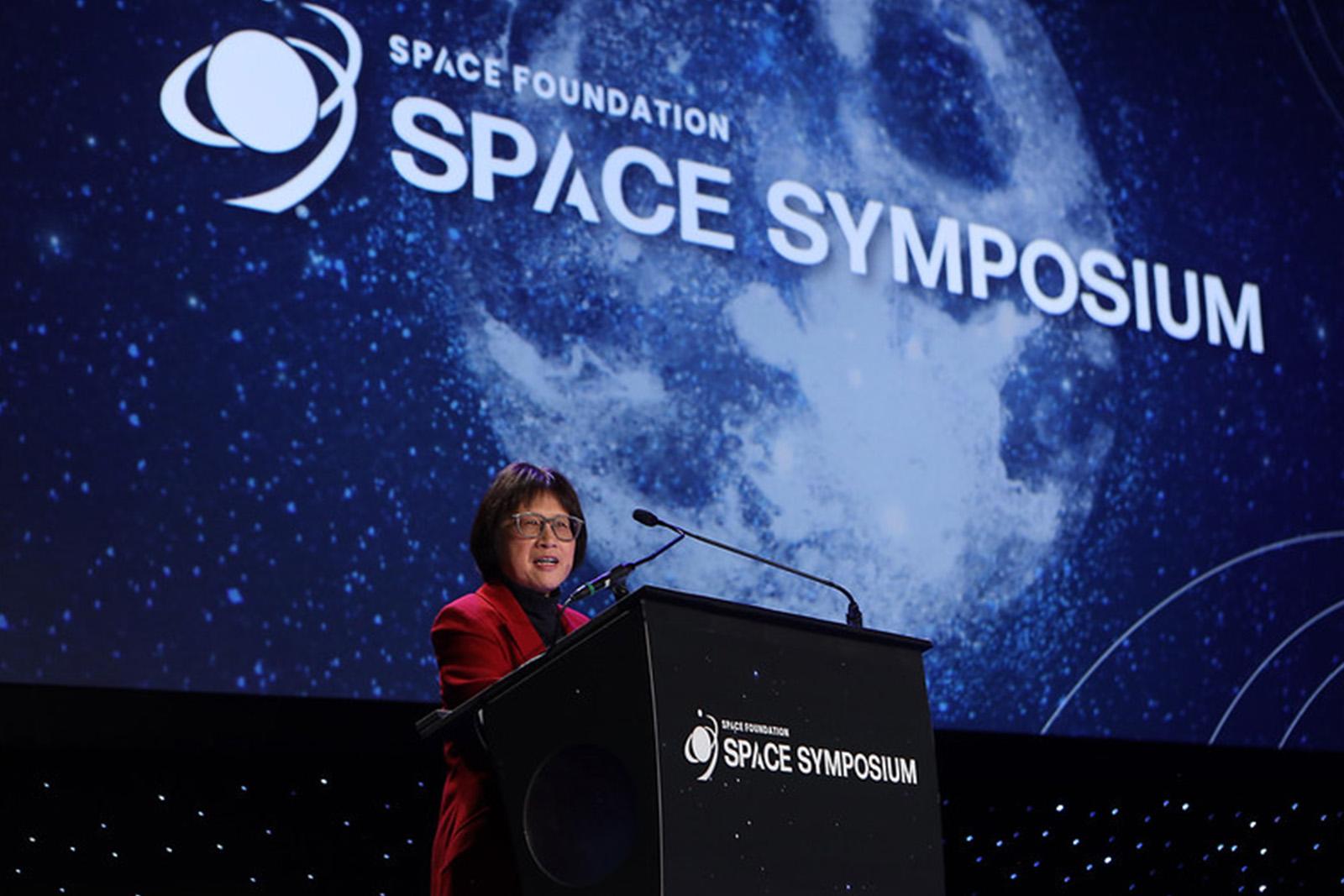
Heidi Shyu, the Pentagon’s undersecretary for research and engineering, speaks April 9 at the Space Symposium in Colorado Springs.
COLORADO SPRINGS—The threat of Russia launching a co-orbital, long-range space nuclear weapon highlights the need for U.S. and allied space vehicles to be more survivable, maneuverable and proliferated, the Pentagon’s head of research says.
Heidi Shyu, undersecretary of defense for research and engineering, said reports of Moscow launching nuclear weapons on long-range boosters from orbiting platforms raise additional concerns of nuclear detonations in space.
Shyu, speaking at the 2024 Space Symposium here, said this shows why there needs to first be increased situational awareness, including both ground-to-space and space-to-space sensors.
“We must be able to detect and predict satellite movements, accurately track the satellites in degrees and provide sufficient warning [for] space-based systems and to our allies and partners,” she said.
The Russian threat was first hinted at in an intelligence assessment revealed Feb. 14 by Rep. Mike Turner (R-Ohio), chairman of the House Permanent Select Intelligence Committee, and later confirmed by the White House.
Shyu said it is one of many growing threats to U.S. and allied space systems and underscores the importance for space vehicles to be able to maneuver out of harm’s way. Accordingly, the Pentagon is investigating a “spectrum of propulsion technologies,” including electric and nuclear, she said.
Additionally, new space vehicles need to be broadly diversified in orbits and communications pathways, and need to be hardened against radiation threats, she said.





